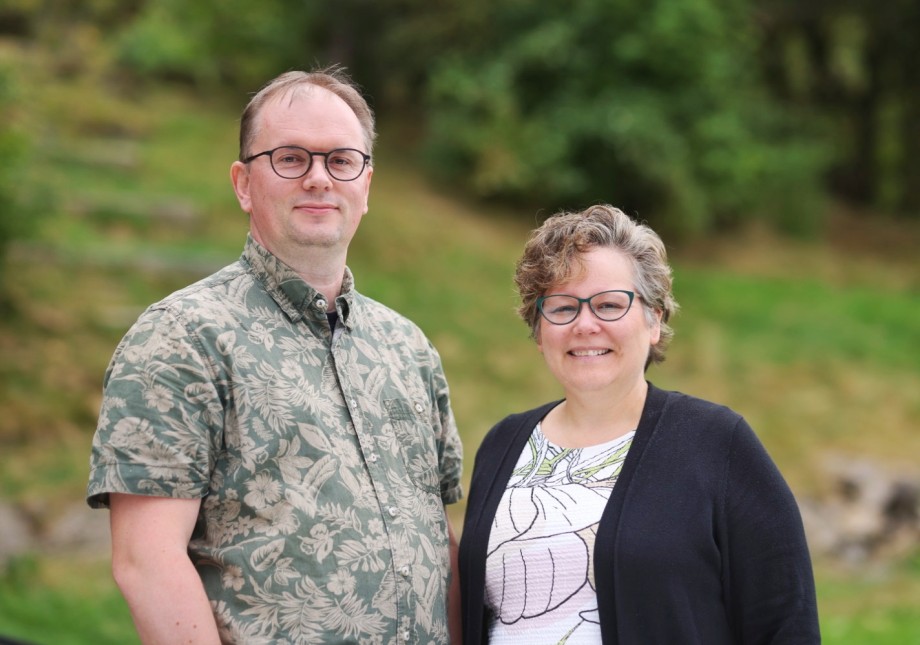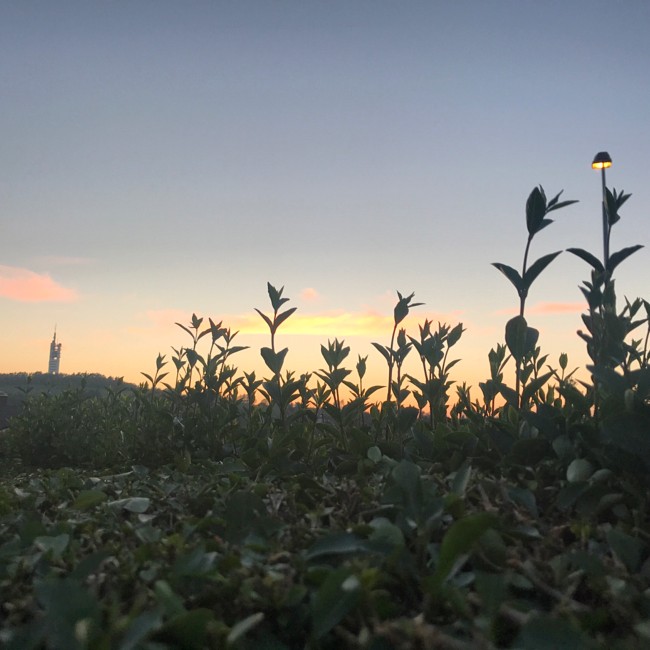The Greenhouse was established as a research group in 2017 and quickly distinguished itself worldwide as a leading professional environment for environmental humanities. On its fifth anniversary, The Greenhouse is moving on, now as a research centre at UiS.

The Greenhouse was established as a research group in 2017 and quickly distinguished itself worldwide as a leading professional environment for environmental humanities. On its fifth anniversary, The Greenhouse is moving on, now as a research centre at UiS.
– By establishing The Greenhouse as a research centre, the university demonstrates its understanding that the humanities can contribute both values and value creation through a basic way of thinking. It also shows an understanding that green transition is not a final destination, but an ongoing process of change, says Dolly Jørgensen.
The establishment of The Greenhouse as a research centre is a significant contribution to realizing the ambitions of both UiS and the Faculty of Education and Humanities, particularly with regard to green transition.
– Joy and congratulations are my immediate responses to yet another confirmation of the good development of The Greenhouse. This highly competent research environment is an excellent example of how our strategic ambition for a green transition can be broadly embraced, across faculties and professional environments, says Klaus Mohn, rector at UiS.
At the crossroads between nature, technology and social structures
The researchers associated with The Greenhouse interrogate various questions about the interaction between nature and technology, and the research in The Greenhouse is similarly placed at this intersection between nature, technology and social structures and uses several disciplines to cultivate new professional and social connections with nature.
– We quickly discovered when we came to UiS in 2017 that many people were working on issues within the environmental humanities. Surprisingly many, says Finn Arne Jørgensen.
The centre aims to support a growing group of academics who use history, literature, media, religion, philosophy and art to understand how people relate to nature and the environment. As an intellectual meeting place, The Greenhouse wants to build connections between academics, museums, interest groups and the public interested in environmental issues.
Since the research group's inception in 2017, The Greenhouse has offered a way to bring people together, aiming to achieve something more than what they can do individually.
– I think we have succeeded. Many people want to contribute their research to The Greenhouse, says Finn Arne Jørgensen.
Great importance for further work
– The Greenhouse already has significant status within its field, and as a centre, we will continue on the path we have already started. In a way, it is simply about continuing the work we have started, and that we have now formalized the way of working we have built up. As a research centre, international dialogue and collaboration become less complicated, and we will be more clearly part of an international research environment, says Dolly Jørgensen.
She emphasizes that gaining centre status has far-reaching significance when it comes to being able to attract research projects and professional talent. The two centre managers are happy that the establishment of a research centre that works with issues within the environmental humanities has been added to UiS. Non-traditional perspective on highly topical societal challenges
– We see that UiS is a microcosm, it includes contradictions. Carrying out environmental humanities research when we have the legacy of being an 'oil university' makes it incredibly interesting to explore the questions we work on within the environmental humanities precisely from here, says Finn Arne Jørgensen.
Klaus Mohn follows up on this:
– The Greenhouse offers a non-traditional perspective on highly topical societal challenges. This provides valuable contributions to the diversity of knowledge we need to improve our understanding of the world around us.
– The challenges we face as a society are great. We need the humanistic aspect in place, we need to understand why we have arrived where we have, and how we can move forward. Now that The Greenhouse has become a research centre at UiS, it shows an understanding that humanistic research can contribute both values and value creation through a basic way of thinking. It also shows an understanding that green transition is not a final destination, but a process of change, says Dolly Jørgensen.
Text: Kristin Vestrheim Cranner. Photo: Elisabeth Tønnessen.
More from The Greenhouse
Dolly Jørgensen receives prestigious Swedish award
Jørgensen will be awarded the 2025 Swedish Gad Rausing Prize for her groundbreaking research in environmental history an...
PhD projects at the Greenhouse
The Greenhouse has several PhD candidates – see presentation of their projects below.
London: The Heart of the British Empire
This webpage will explore the British perspective on waste treatment history in its Mediterranean colonies as the study ...
British Palestine's urban waste history
This webpage will describe British Palestine's urban waste history as the study develops in 2025-2026.
Colonial Cyprus' urban waste history
This webpage will describe Colonial Cyprus' urban waste history as the study develops in 2025-2026.
Histories of Weathering and Weathering in History
The Greenhouse Center for Environmental Humanities hosted a workshop on “Affect and Material Cultures of Weathering: His...
New international research project on energy transitions
New international research project to explore energy transitions in the Nordic region over the past 150 years. The proje...
From Greenhouse to Cryobank: exploring planetary temporalities in Germany
Greenhouse member and Good Fire researcher Charlotte Wrigley gets fellowship at at the Panel on Planetary Thinking, host...
Burning Questions: Korean student's research visit to The Greenhouse
Hyeonbin Park, a Ph.D. student in the Graduate School of Science and Technology Policy at the Korea Advanced Institute o...
Professor Dolly Jørgensen wins funding for new collaborative project on extinction and museums
A new collaborative project on extinction histories has been selected for funding by The Research Council of Norway and ...
NoRS- EH Course: Play and the Environmental Humanities
5 ECTS PhD course in Environmental Humanities to be held in Stavanger, 2-6 December 2024
BLOCYP: Between London, Cyprus, and Palestine: Waste History in the British Eastern Mediterranean
An MSCA Postdoctoral Fellowship project by Yaron Jorgen Balslev
The Greenhouse at the 2024 World Congress of Environmental History
The Fourth World Congress of Environmental History will take place at the University of Oulu, Finland from 19 to 23 Au...
The Greenhouse arranges international conference on Storytelling for Environmental Futures
On 7-9 August 2024, The Greenhouse is hosting an international conference on Storytelling for Environmental Futures, whi...
Literary Birding in Taiwan
Endre Harvold Kvangraven describes the experience of a research trip to Taiwan as part of his PhD studies at the Univers...
The Osage, Automobility, and the Environment in Sundown (1934)
UiS post-doctoral researcher Daniel Bowman writes about John Joseph Mathews’s 1934-novel Sundown, and the use of automob...
The Greenhouse Centre’s permafrost expert invited to ‘first of its kind’ workshop in Paris
Charlotte Wrigley attends 'Thinking Through Permafrost' workshop
Animesh Chatterjee brings the Greenhouse and ICOHTEC in dialogue
Chatterjee elected on the Executive Committee of the International Committee for the History of Technology


















